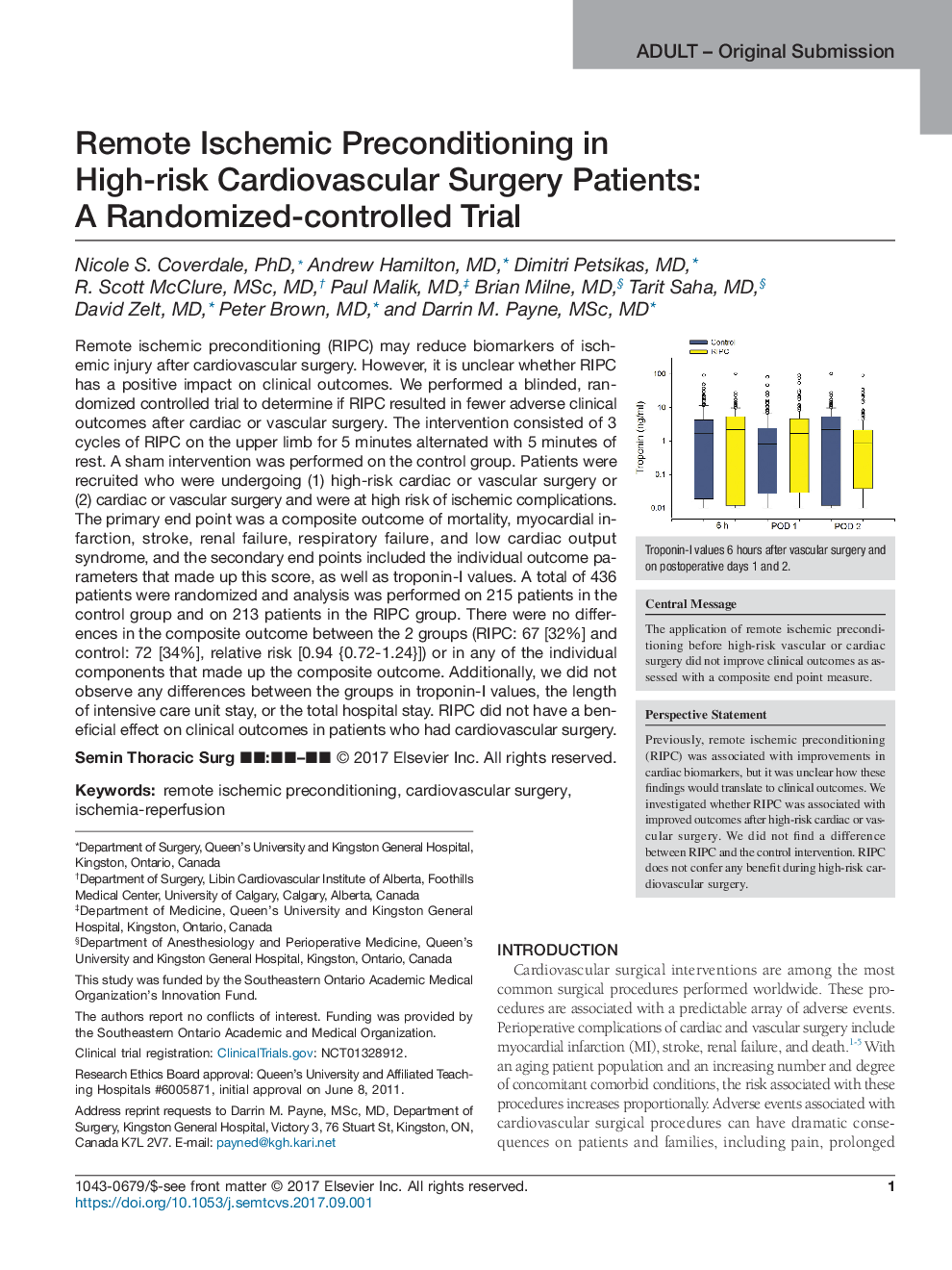| Article ID | Journal | Published Year | Pages | File Type |
|---|---|---|---|---|
| 8679070 | Seminars in Thoracic and Cardiovascular Surgery | 2018 | 8 Pages |
Abstract
Remote ischemic preconditioning (RIPC) may reduce biomarkers of ischemic injury after cardiovascular surgery. However, it is unclear whether RIPC has a positive impact on clinical outcomes. We performed a blinded, randomized controlled trial to determine if RIPC resulted in fewer adverse clinical outcomes after cardiac or vascular surgery. The intervention consisted of 3 cycles of RIPC on the upper limb for 5 minutes alternated with 5 minutes of rest. A sham intervention was performed on the control group. Patients were recruited who were undergoing (1) high-risk cardiac or vascular surgery or (2) cardiac or vascular surgery and were at high risk of ischemic complications. The primary end point was a composite outcome of mortality, myocardial infarction, stroke, renal failure, respiratory failure, and low cardiac output syndrome, and the secondary end points included the individual outcome parameters that made up this score, as well as troponin-I values. A total of 436 patients were randomized and analysis was performed on 215 patients in the control group and on 213 patients in the RIPC group. There were no differences in the composite outcome between the 2 groups (RIPC: 67 [32%] and control: 72 [34%], relative risk [0.94 {0.72-1.24}]) or in any of the individual components that made up the composite outcome. Additionally, we did not observe any differences between the groups in troponin-I values, the length of intensive care unit stay, or the total hospital stay. RIPC did not have a beneficial effect on clinical outcomes in patients who had cardiovascular surgery.
Related Topics
Health Sciences
Medicine and Dentistry
Cardiology and Cardiovascular Medicine
Authors
Nicole S. PhD, Andrew MD, Dimitri MD, R. Scott MSc, MD, Paul MD, Brian MD, Tarit MD, David MD, Peter MD, Darrin M. MSc, MD,
